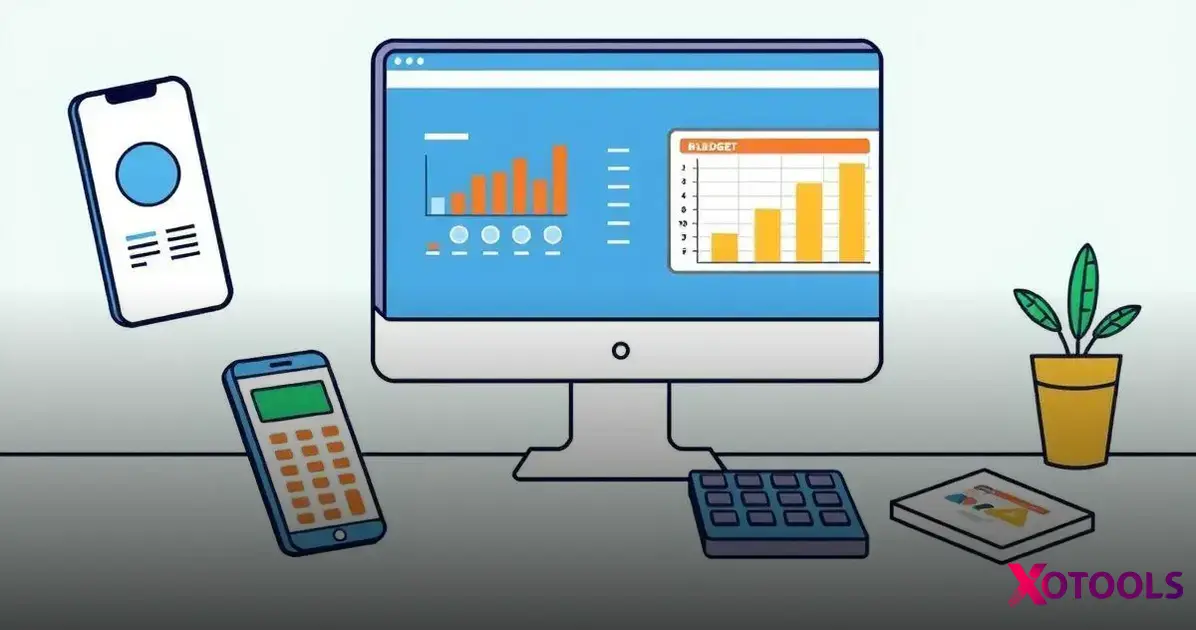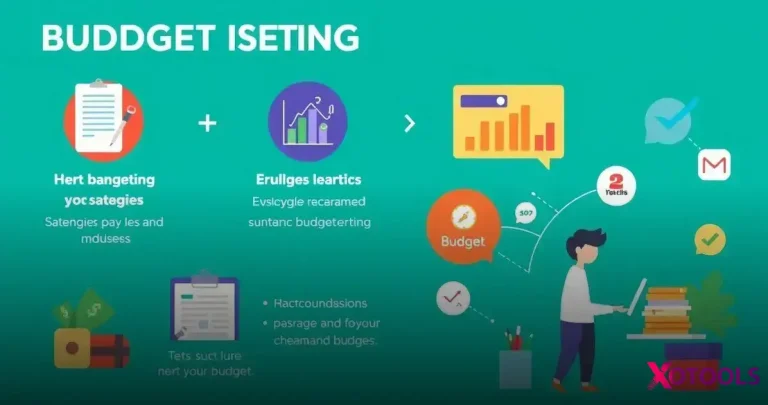ADVERTISEMENT
Are you struggling with finances? Learning how to budget can be your ticket to financial security.
Whether you’re saving for a big purchase or trying to manage daily expenses, creating a budget is essential.
In this article, we’ll cover the basics of budgeting, share effective strategies, and provide useful tips to help you stay on track. Discover how budgeting can lead to financial freedom!
Understanding the Basics of Budgeting
Understanding the basics of budgeting is the first step towards managing your money wisely. A budget helps you plan your spending and saving effectively. By tracking your income and expenses, you can see where your money goes each month.
To create a budget, start by listing all your sources of income. Then, write down your fixed expenses, like rent or utilities, as well as variable expenses, such as groceries and entertainment. This will give you a clear picture of what you can afford.
Once you have your budget set, it’s important to stick to it. Monitor your spending regularly and adjust as needed. This way, you can make sure you are saving for your goals while still enjoying life.
Creating a Personal Budget Plan
Creating a personal budget plan is a great way to manage your money effectively. Start by determining how much money you make each month. This includes your salary, any side jobs, and other income sources. Knowing your total income will help you set realistic spending limits.
Next, identify your necessary expenses. These are costs like rent, groceries, and transportation that you need to cover each month. Once you have a clear idea of your fixed and variable expenses, subtract these costs from your monthly income.
After figuring out your income and expenses, allocate a portion of your budget for savings. It’s important to save for emergencies and future goals. With a solid budget plan, you can track your spending, stay on target, and enjoy financial freedom.
Tools to Help You Budget

Using tools can make budgeting easier and more effective. There are many mobile apps available that help you track your income and expenses. These apps often categorize your spending, making it simple to see where your money goes.
Another helpful tool is a budgeting spreadsheet. You can create one using software like Excel or Google Sheets. This method allows you to customize your budget to fit your needs. Just update it regularly to reflect your spending habits and income changes.
Lastly, budget calculators can help you understand your financial situation better. They provide insights on savings goals and spending limits. With the right tools, budgeting becomes less stressful and more manageable, leading you closer to financial success.
Common Budgeting Mistakes to Avoid
One common budgeting mistake is forgetting to track small expenses. These little purchases, like snacks or coffee, can add up quickly. If you ignore them, your budget may not reflect your true spending habits, leading to overspending.
Another mistake is not adjusting your budget when life changes. Unexpected expenses, such as car repairs or medical bills, can happen anytime. Failing to update your budget to accommodate these changes can throw off your savings goals and financial plans.
Lastly, many people underestimate the importance of savings. A common mistake is budgeting only what you need for immediate expenses. It’s crucial to plan for the future and include savings in your budget so you can be prepared for emergencies and opportunities.
Adjusting Your Budget as Needed
Adjusting your budget as needed is essential for staying on track with your financial goals. Life is full of surprises, like unexpected expenses or changes in income. By regularly reviewing your budget, you can spot these changes and make necessary adjustments.
When you realize that you are spending more in one category, like dining out, it’s okay to shift funds from another area. For example, if you have extra savings in entertainment, you can move those funds to cover dining costs during the month. This flexibility helps you manage your budget effectively and keeps you prepared.
Additionally, remember to revisit your goals regularly. If you find you are saving for a trip or a big purchase, you might want to temporarily cut back on other expenses. Adjusting your budget to reflect your priorities ensures you remain focused on what is most important to you.
Tracking Your Budget Progress
![]()
Tracking your budget progress is key to achieving financial goals. Regularly reviewing your spending helps you understand where your money is going. You can use budgeting apps or spreadsheets to see how you are doing compared to your plan. This information can guide you in making necessary adjustments and keeping your budget on track.
To effectively track your progress, set specific goals for each category in your budget. For example, if you aim to save a certain amount each month, check your savings at the end of the month. Celebrating small wins, like reaching a savings milestone, can motivate you to stick to your budget.
Also, be honest with yourself about your spending habits. If you notice that you are consistently over budget in certain areas, take time to reflect on why that is. Understanding your behavior can lead to better decisions in the future and help you stay committed to your financial journey.
Staying Disciplined with Your Budget
Maintaining discipline is one of the biggest challenges when it comes to budgeting. It’s easy to get tempted by unplanned purchases, but staying focused on your financial goals is key.
One way to stay disciplined is to set clear, achievable goals. Whether it’s building an emergency fund or saving for a trip, having a reason to stick to your budget can boost motivation and reduce impulsive spending.
Also, try using the envelope system or digital wallets with set limits. These tools help you stay within your budget by giving each spending category a cap. Once the funds run out, you’ll know it’s time to stop spending in that area.
Finally, remind yourself regularly why you started budgeting. Write down your goals or visualize what financial freedom looks like for you. Small reminders can keep you accountable and committed in the long run.
Budgeting Basics
What is the first step in effective budgeting?
Understanding how much money you earn and spend each month.
Why is it important to categorize your spending?
Categorizing your spending helps you identify areas where you can cut back if needed.
What factors can affect your budget?
New jobs, unexpected expenses, or changes in lifestyle.
Why is it important to regularly review and adjust your budget?
Your financial situation can change, and adjustments help you manage your money better.
What can you gain from clearly seeing your income and expenses?
More control over your finances.
What should you keep track of for effective budgeting?
All sources of income and necessary expenses.







